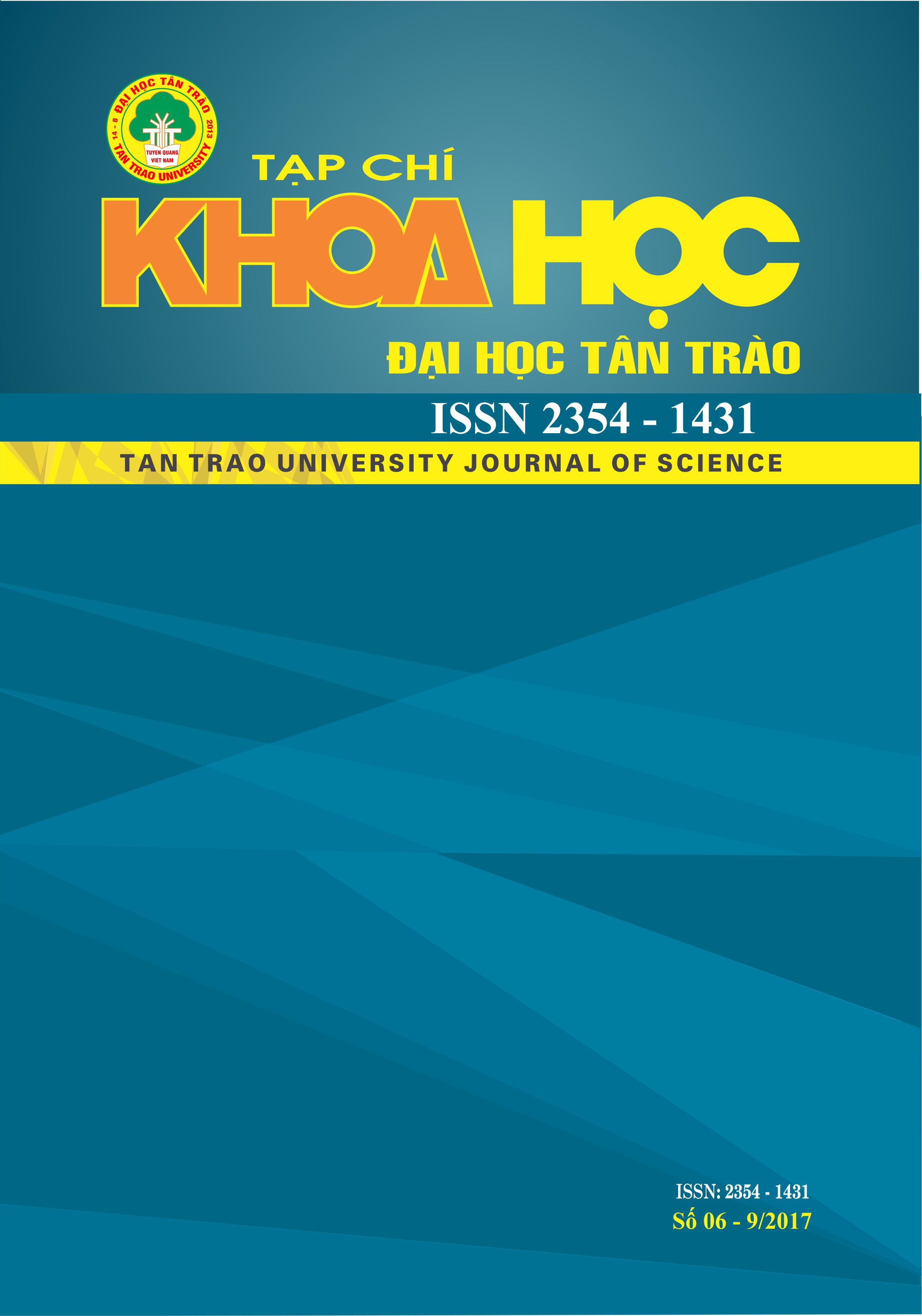Quy trình tổ chức sinh hoạt chuyên môn theo định hướng dạy học tích hợp liên môn
DOI:
https://doi.org/10.51453/2354-1431/2017/157Keywords:
Quality of services; Student’s satisfaction; Tan Trao university.Abstract
This article presents studied results of the connection between quality of training services and student’s satisfaction at TTU. The result based on questionnaires from 396 students with 26 questions regarding 5 factors affecting quality of training services (reliability, applicable potential, service capacity, sympathy, facilities) and student’s satisfaction. The study shows that sympathy and service capacity most impact on student’s satisfaction.
Downloads
References
1. Bộ Giáo dục và Đào tạo (2014), Sinh hoạt chuyên môn, Nxb Đại học Sư Phạm;
2. Bộ Giáo dục và Đào tạo (2015), Tài liệu tập huấn dạy học tích hợp liên môn, Hà Nội;
3. Đỗ Hương Trà (chủ biên) (2015), Dạy học tích hợp phát triển năng lực HS - Quyển 1, Nxb Đại học Sư Phạm.
Downloads
Published
How to Cite
Issue
Section
License

This work is licensed under a Creative Commons Attribution-ShareAlike 4.0 International License.
All articles published in SJTTU are licensed under a Creative Commons Attribution-ShareAlike 4.0 International (CC BY-SA) license. This means anyone is free to copy, transform, or redistribute articles for any lawful purpose in any medium, provided they give appropriate attribution to the original author(s) and SJTTU, link to the license, indicate if changes were made, and redistribute any derivative work under the same license.
Copyright on articles is retained by the respective author(s), without restrictions. A non-exclusive license is granted to SJTTU to publish the article and identify itself as its original publisher, along with the commercial right to include the article in a hardcopy issue for sale to libraries and individuals.
Although the conditions of the CC BY-SA license don't apply to authors (as the copyright holder of your article, you have no restrictions on your rights), by submitting to SJTTU, authors recognize the rights of readers, and must grant any third party the right to use their article to the extent provided by the license.


